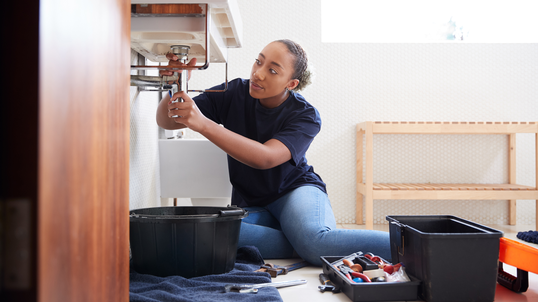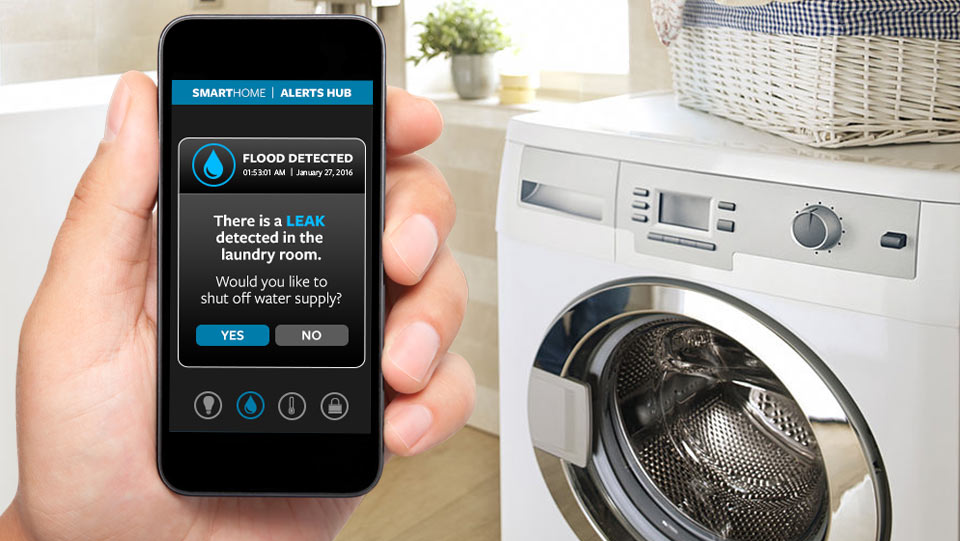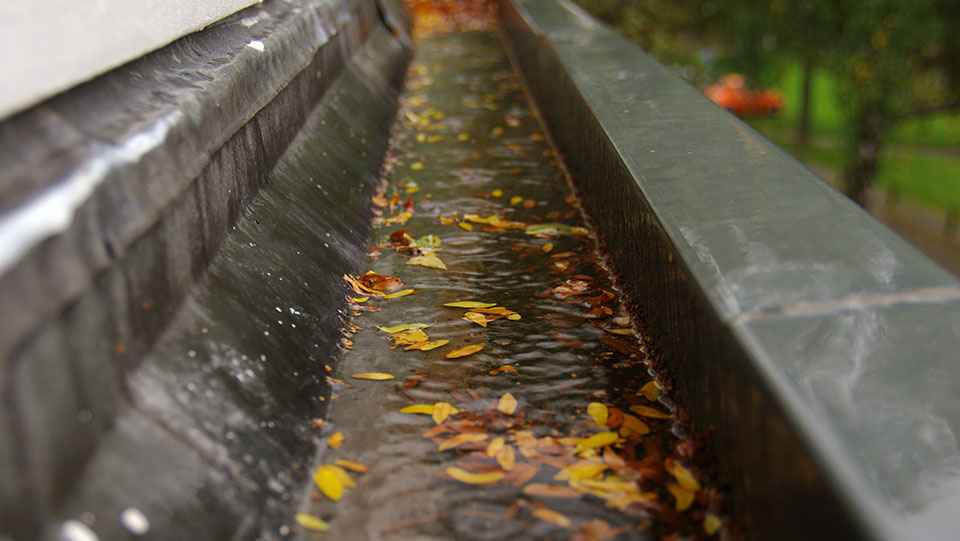4 Smart Home Leak Detection Devices to Help Avoid Water Damage


Water damage to a home can be costly, but fortunately there are steps you can take as a homeowner to help prevent damage. One easy preventive measure is to add a leak detection system to your home. These systems use smart leak sensors to alert you to leaking or freezing pipes so you can fix them before they get worse.
How do smart leak and freeze detectors work?
A home water protection system with smart leak detection is designed to detect leaks and monitor water flow in your home. When moisture, freezing or an irregular water flow is detected, the system sends an alert. This may be an in-home audio alert (similar to a smoke detector), or it may be a system that uses your home Wi-Fi to send an alert to your smartphone.
These home water protection systems can help prevent damage because they are designed to identify a leak in its early stages, so you have time to locate the leak and have it repaired before it gets worse. Some home water leak detection systems are battery powered, while others plug in and have extended-life battery backup.
How much do smart home water detection systems cost?
Generally, water leakage prevention systems range in price from relatively inexpensive simple leak detectors to several hundred dollars for smart water detectors designed to monitor your whole home. Simple sensors are battery powered and can be placed on the floor in areas like the bathroom or laundry room, which are most susceptible to water damage.
More expensive smart water detectors can monitor water flow in your pipes and automatically shut off your water if a leak is detected. Many of these water leak protection systems can connect to your home Wi-Fi and send alerts directly to your phone. Some systems are designed to be self-installed, while others that can shut off the water supply may require professional installation.
4 types of smart home leak detection systems
A home water protection system is most effective when several components work together. These components can work individually or as part of a connected smart system, but most systems will include one or more of the following components:
1. Smart leak detectors: At the front line of any home water protection system are smart leak detectors. Typically, these are moisture-sensitive devices that can be placed strategically throughout the home to detect signs of leaking. Some of these systems are self-contained with a multiyear battery and a built-in alarm. Other smart systems may use your home Wi-Fi to connect to a home security system. These systems can even send a notification to your phone if a leak is detected. Systems like these usually don’t require professional installation.
2. Smart water monitors: A smart water monitor can alert you to water leaks by tracking water flow through your home. The monitor connects to your home plumbing either by being connected to a pipe or using ultrasonic technology. When the monitor senses an abnormal loss of water pressure, the system sends an alert, warning you about a potential leak. Some systems can even provide data on your water usage to help you conserve water. Some systems can be self-installed, while others may require professional installation.
3. Smart water shut-off valves: Imagine you’re on vacation and your smart water monitor detects a leak. Even the best monitor can’t prevent the leak from causing damage if you’re not there. A smart water shut-off valve connects to your home water supply and temporarily shuts off your water at the source. This can also be helpful if your main water shut-off is hard to find or difficult to access. You can activate the shut-off valve remotely or pair it with a smart water monitor or smart leak detectors to create a more effective home leak protection system. Generally, shut-off valves are installed by a professional. Prices vary depending upon whether the smart water shut-off valve is part of a smart water monitor system or purchased separately.
4. Freeze sensors: Like leak sensors, freeze sensors are designed to detect the temperature conditions contributing to freezing pipes. Sensors can detect when the temperature inside your home drops below a set temperature, usually around 45°F (7°C). The sensors can then sound an alarm, call your phone, use your Wi-Fi to send an alert or communicate with your smart water shut-off valve. Some home leak detection systems combine water and freeze detection, so be sure to read the information on the package when considering which option is best for you.
Insure your home against water damage with Travelers
If you’ve been wondering how to help prevent water damage in your home, installing a water leak prevention system is worth considering. Of course, making sure your home is appropriately protected against the costs of water damage should be a priority. Talk to your independent agent or Travelers representative to make sure you have the appropriate coverage for your home.



